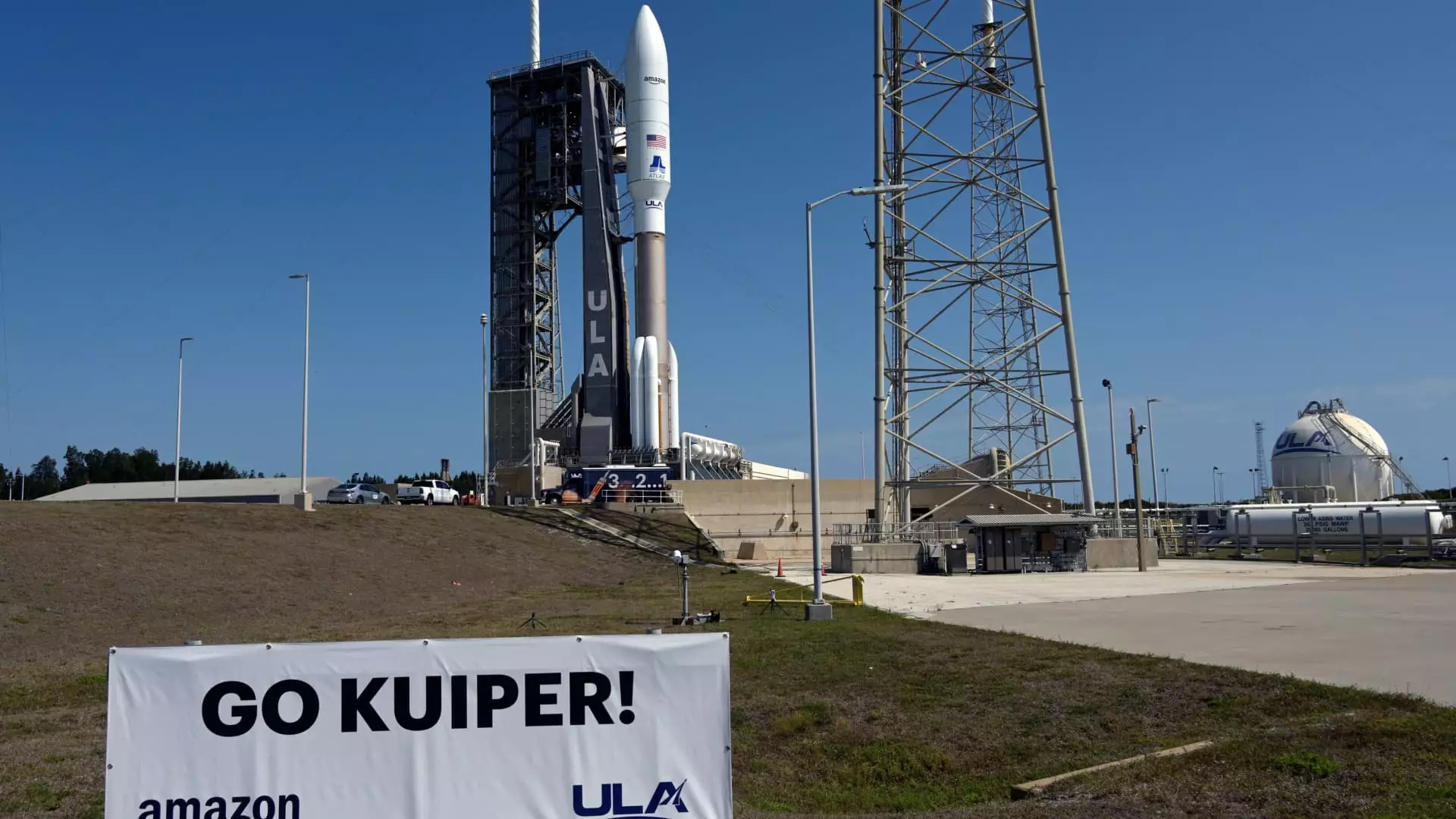In an era defined by innovation and rapid technological advancement, the recent delay of Amazon’s Project Kuiper satellite launch highlights the inherent risks of ambitious projects in the aerospace sector. United Launch Alliance (ULA) announced a last-minute scrub of the highly anticipated launch due to an “elevated purge temperature” in the Atlas V rocket’s booster engine—an issue deemed unresolvable within the countdown period. This incident, which transpired a mere 30 minutes before the scheduled lift-off, serves as a sobering reminder of the complexities involved in space exploration and commercial satellite endeavors.
Technological Difficulties and Commercial Pressures
As we watch tech giants attempt to redefine how we connect to the internet, we must confront the reality of their undertakings. Amazon’s ambitious plans for Project Kuiper, which aims to deploy over 3,000 satellites to beam high-speed internet globally, brings to light a bountiful mix of promise and peril. The company has already made strides, successfully launching 27 satellites earlier this year, but the recent setback shows that even the most well-resourced organizations can face monumental challenges. The stakes are undeniably high; Amazon is racing against a looming Federal Communications Commission deadline that requires it to launch over 1,600 satellites by July 2026. This pressure could lead to rushed decisions that compound risks rather than mitigate them.
Can Amazon Keep Pace With Competitors?
The curious dance between ambition and caution is particularly striking in contrast to competitors like SpaceX’s Starlink, which continues to dominate the satellite internet landscape. SpaceX’s operational integrity has been proven time and again, and as Amazon’s delays mount, the question arises: can the tech titan truly match this pace? SoftBank-backed OneWeb and Viasat are also in the fray, striving to carve out their respective niches in this burgeoning market. The competition is fierce, and the potential for Amazon to falter could grant rivals an advantageous lead.
The Bigger Picture: A Satellite Internet Revolution
However, the conversation should not solely fixate on Amazon’s setbacks. With the global demand for internet access reaching unprecedented levels—especially in underserved regions—the role of satellite internet becomes ever more critical. The promise of Project Kuiper extends beyond mere corporate rivalry; it invokes the hope of a connected world where individuals and communities have equitable access to information and opportunity. Therefore, while the tech community watches and waits, the potential impact of Project Kuiper’s success—or failure—resonates far beyond the technical challenges that ULA and Amazon currently grapple with.
The Uncertain Future of Space Endeavors
In an age characterized by a collective push toward connectivity, Amazon’s Project Kuiper represents not just a gamble on satellite technology but a complicated interplay of resources, ambition, and timing. As delays continue to emerge, investors and consumers alike will watch closely. The outcome of such high-stake ventures raises questions about the sustainability of rapid technological advancements. Will this breathtaking promise of satellite internet ultimately lead to a more connected world, or are we witnessing the birth pangs of a swift-moving industry struggling to keep its footing amidst ambition? Ultimately, the answers will shape the future of the internet and accessibility dramatically.

Leave a Reply